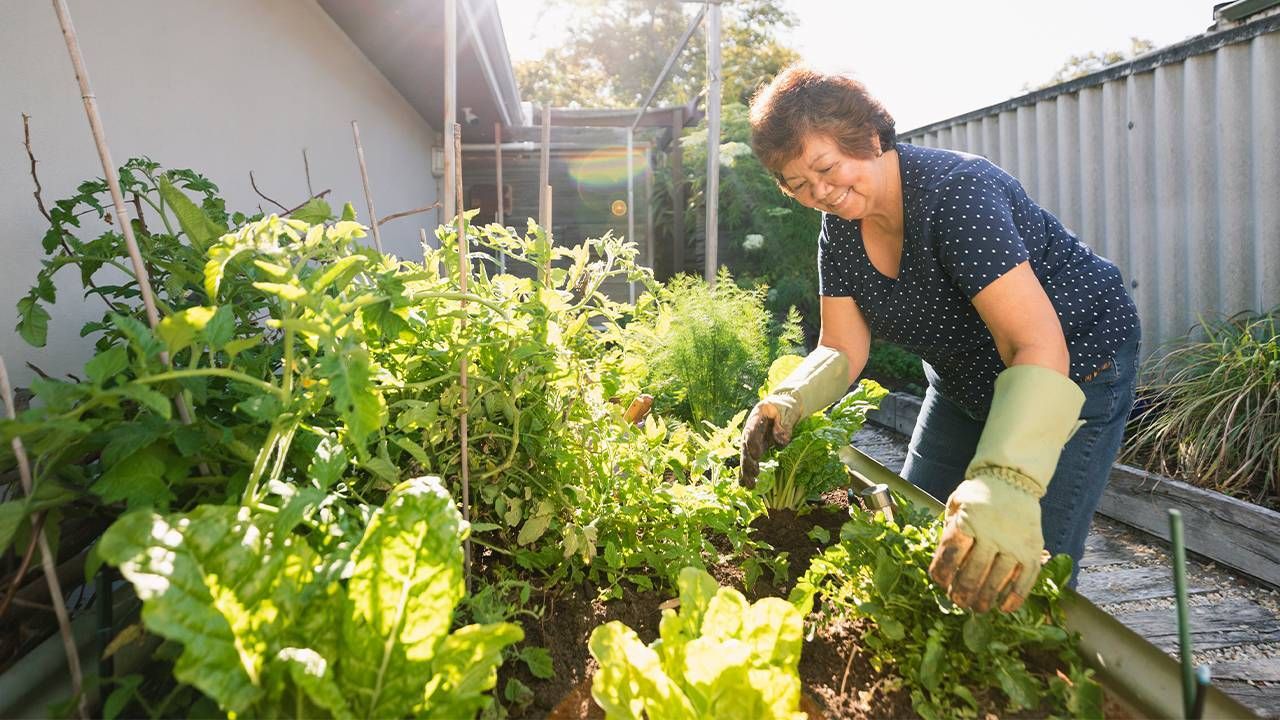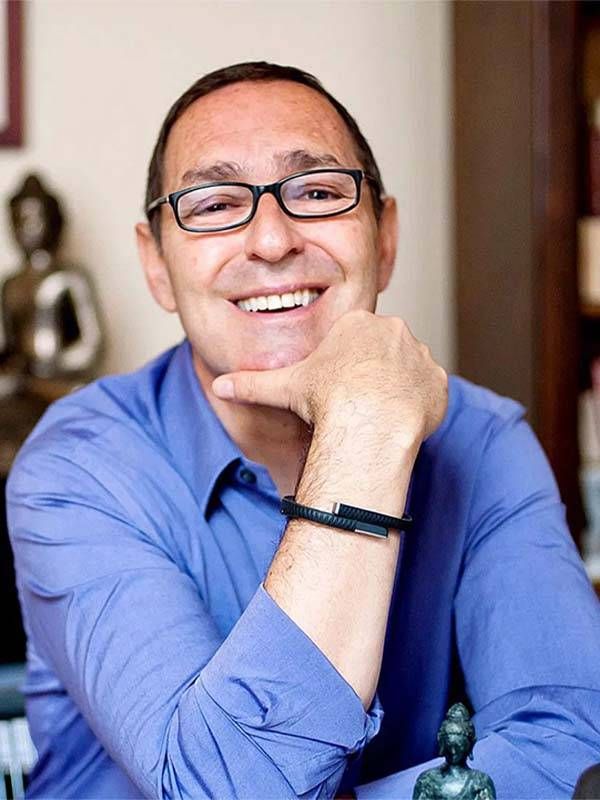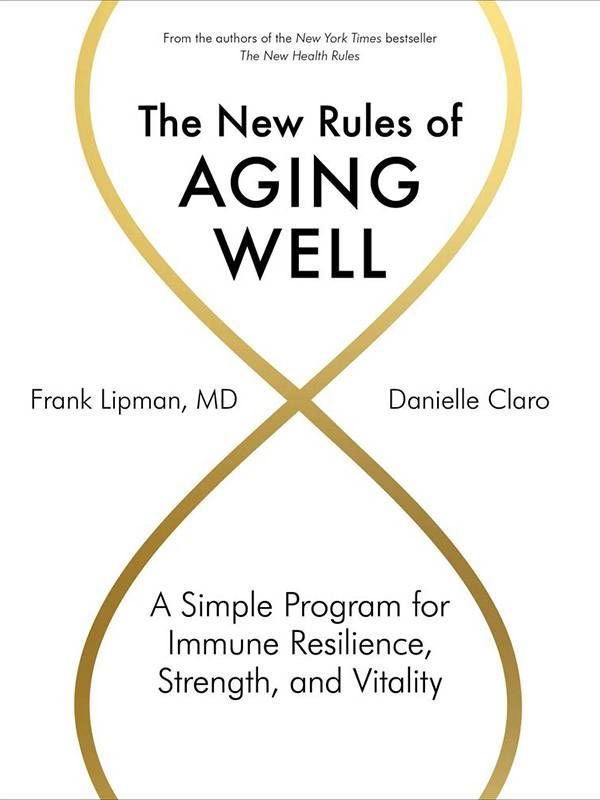The New Rules of Aging Well
Author Dr. Frank Lipman says the lifestyle choices we make determine how we age
Aging is a natural process that involves direct damage to cells and an accumulation of cellular waste, says Dr. Frank Lipman. Our ability to repair this damage decreases over time, but the extent and speed of that decline varies — a lot.

Diet, activity, rest and stress all play a role in aging, Lipman says. And that's good news because it means we have some control over the course of how we age.
"The real obstacle for most of us isn't age. It's loss of function."
Lipman is a medical doctor and practitioner of Western and Chinese medicine. He's also the founder of Eleven Eleven Wellness in New York City, a treatment center that works with patients to get healthy and stay healthy. His book with co-author Danielle Claro, "The New Rules of Aging Well: A Simple Program for Immune Resilience, Strength and Vitality," is a practical guide to strengthening your immune system and reversing the symptoms of aging.
I interviewed Lipman about the lifestyle strategies he recommends to guide people toward aging well and living well longer. Highlights:
Barbara Sadick: In your book, you say people come to you with aches and pains, exhausted and gaining weight. They assume these are symptoms of aging. Are they?
Dr. Frank Lipman: Most of us have been programmed to believe that growing older is synonymous with getting tired, fat, slow, forgetful and having no interest in sex or the loss of the ability to perform. The real obstacle for most of us isn't age. It's loss of function.
Our bodies are perfectly capable of remaining healthy and vigorous and our brains can absolutely stay clear and sharp if we treat our bodies properly and [do] not abuse them.
"How you age has everything to do with the choices you make and what you put into your body and mind."
You say it's more important than ever to prioritize immunity and overall wellness. Would you elaborate on what you mean?
The immune system fights infection. How well your immune cells function is a direct response to how well you take care of yourself.
When you take good care of yourself, the immune system's self-cleaning mechanism or autophagy kicks in. Autophagy is digestion of cellular waste by enzymes of the same cells. Those cells clean their own waste. When autophagy is working well, your body recovers faster and better.
As we've seen, people with co-morbidities (more than one disease or condition) have worse reactions to COVID-19.
You write that our daily life choices affect our overall health. What are some of those lifestyle choices we should be aware of?
People need to be aware of things like what and when they eat, how they move their bodies, how they deal with stress, how they sleep, how kind they are to others and whether they hold on to resentments.
Food, you say, plays a major role in optimizing health. What kinds of foods should people eat as they age?
Research shows that to age well, we have to eat less and consume fewer calories.
Sugar is a major inflammatory [substance] and should be gradually cut out of your diet.
Eat dinner earlier and breakfast later and eat only within an eight- to ten-hour period of the day.
"Daily movements like bending and cleaning are much more important than going to the gym. Find an exercise you can enjoy and stick with it."
As much as you can, eat fresh, natural, real food that doesn't come prepackaged and won't go bad if not refrigerated. Move away from processed foods.
Eat non-starchy vegetables and other greens and stop eating when you feel eighty percent full.
We are commonly told that we should eat three meals a day, with breakfast being the most important. Is this true?
Contrary to popular wisdom, breakfast is not the most important meal of the day and can be skipped entirely. Try eating only two meals a day between late morning and early evening and then fast until the next day. That gives the body a rest from digesting.
Cut down animal protein to once a day. If you like red meat, make sure it's organic and grass-fed, but generally eat more plants than animals.
Drink lots of water, cut out sodas and juices and drink your coffee black if you can.

You write about how good hydration is important to the body's well-being. How can we increase the amount of water we add to our bodies and why is it so important?
As we age, the amount of water in the body decreases. Water is vital to regulating body temperature, keeping joints lubricated, delivering nutrients to the cells and keeping the body healthy. Drink at least three to four glasses of water a day and drink throughout the day.
It's not uncommon that as we age, we don't realize when we are thirsty or when our bodies need water.
Sleep, you say, is critical to improving quality of life. What kind of changes can people make to optimize healthy sleep?
Sleep is a rhythm of the body affected by light and darkness. Instead of using too much artificial light at night, begin to dim the lights for a good hour or two before going to bed. Turn off all laptops, TVs and other sources of artificial light and make the room as dark as possible.
Keeping a regular sleep schedule by going to sleep and waking at the same times every day creates a good and healthy sleep pattern.
We know that being physically active improves our quality of life. How can more physical activity be incorporated into daily life?
Throughout the day, move your body as much as you can. Get up and move around. Daily movements like bending and cleaning are much more important than going to the gym.
"You'll need to let go of grudges and anger and forgive people. Confront your issues in whatever way you can ... If you aren't able to let go of anger, you only punish yourself."
Find an exercise you can enjoy and stick with it. As we age, it takes longer to recover from injury, so choose exercises that won't injure you easily.
You write about the negative effects of social isolation. As we age, why is it important to maintain and expand our social circles?
Studies show that people who are not part of a 'tribe' don't age as well. We all need some kind of community, people with whom we are comfortable.
Being sociable, belonging and having a sense of humor helps keep your mind active. Loneliness is detrimental to your health and studies show it can contribute to many illnesses from heart disease to dementia.

You also write about the importance of inner health to aging well. What do you mean, and would you give some examples?
To maximize your inner health, you'll need to let go of grudges and anger and forgive people. Confront your issues in whatever way you can, including consulting a therapist, and take up some kind of mindful healing practice like meditation, somatic healing [a form of alternative therapy that uses mind-body exercises to release pent-up trauma] or religion.
If you aren't able to let go of anger, you only punish yourself. The longer you hold on to it, the more negative effects it will have on your body and mind.
What changes should people who take your advice be seeing as they age?
Aging well is about being vital, happy and continuing to be able to do the things you enjoy for decades. How you age has everything to do with the choices you make and what you put into your body and mind. If you make the suggested lifestyle changes, you will look good, be energized and feel well, happy, sexy, agile and strong.

